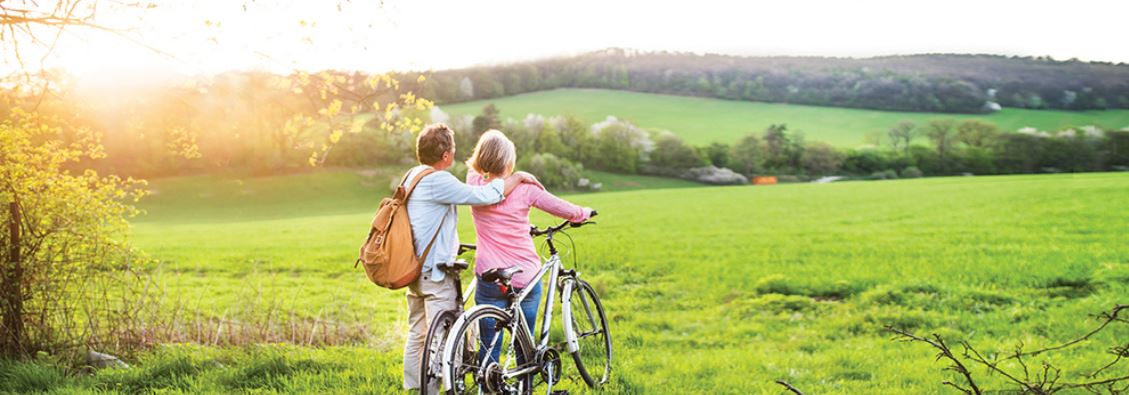2020 May Newsletter
Welcome to our May newsletter. After an extraordinary month of social and economic hibernation, there are positive signs that some of the restrictions on our everyday lives will soon be loosened somewhat. This is welcome news for households, businesses and our economy.
Data released in April provided an early insight into the impact of the coronavirus on the Australian economy. Inflation rose by an unexpected 0.3 per cent in the March quarter, lifting the annual rate from 1.8 per cent to 2.2 per cent. The biggest increases were food, alcohol and tobacco and health. The biggest falls were petrol, travel and accommodation.
Retail sales jumped a record 8.2 per cent in March as consumers stocked up on food and essentials ahead of the shutdown. New home sales fell 23.2 per cent in March while new vehicle sales were down 9.1 per cent in the year to March as Australians reassessed their finances. But consumer confidence rebounded in April, with the ANZ/Roy Morgan consumer confidence index lifting to 85 points, up from record lows of 65 points in March. National petrol prices fell to an average of 100.6c a litre in April, the lowest in 15 years. This follows a further 22 per cent drop in global crude oil prices in April as a result of a glut in supply.
Business confidence was also at record lows in March, with the NAB index falling from -2.4 points to -65.6 points. Unemployment rose slightly to 5.2 per cent in March but Reserve Bank Governor, Philip Lowe said in a speech that he expects the rate to climb to 10 per cent in the June quarter and remain above 6 per cent for the next few years. He also expects inflation will fall significantly in the June quarter as our economy contracts but said: “We can be confident that our economy will bounce back”. The Aussie dollar rose over 6 per cent in April to over 65 US cents, perhaps due to Australia’s success to date in dealing with the coronavirus.
Keeping the economy moving
- RBA using low interest rates & easy money
 The Morrison Government’s mind-bogglingly large support packages to get Australians through the COVID-19 shutdown have dominated headlines, and rightly so. Only months ago, the Australian economy was in relatively good shape and headed for a Budget surplus.
The Morrison Government’s mind-bogglingly large support packages to get Australians through the COVID-19 shutdown have dominated headlines, and rightly so. Only months ago, the Australian economy was in relatively good shape and headed for a Budget surplus.Behind the scenes, the Reserve Bank of Australia (RBA) has also pulled out all stops to keep the economy moving.
RBA monetary policy is the yin to the Government’s fiscal policy yang. During the current crisis it’s designed to complement and to some degree pay for Government spending which already exceeds $320 billion.
On March 19, RBA Governor Philip Lowe announced a package of monetary support policies to “support jobs, incomes and businesses”. These policies included maintaining the cash rate at 0.25 per cent, the creation of a $90 billion funding facility to support business lending, and the purchasing of government bonds.
Rates as low as they will go
After two rate cuts in March, the cash rate is currently at a new all-time low of 0.25 per cent. The RBA has promised to keep it there until “progress has been made towards full employment and it is confident that inflation will be sustainably within the 2-3 per cent target range”. With unemployment expected to hit double digits we could be waiting for some time, although inflation jumped to 2.2 per cent in March.iIncreased funding for SMEs
While low interest rates traditionally encourage individuals and businesses to borrow and spend, there’s less inclination to do either while the Coronavirus shutdown continues. So the RBA has provided a three-year funding facility for the banks at a low fixed rate of 0.25 per cent. The banks will be able to access this funding if they increase lending to businesses.Bond buying bonanza
In its March statement it also set a target for the yield on 3-year Australian Government bonds of around 0.25 per cent, in line with the cash rate. This was a signal to the market that the central bank is serious about keeping rates lower for longer. At the time 3-year Government bond yields were around 0.85 per cent.The RBA set out to achieve this target by buying Government bonds in the secondary market. This is a monetary policy lever it has never used before, known as quantitative easing (QE).
How does quantitative easing work?
QE is where central banks print money to buy government bonds. A government bond is a low risk investment product whereby investors lend money to the government for a set period at a predetermined rate of return referred to as the yield or interest rate.When the RBA enters the secondary market to buy billions of dollars of government bonds, it effectively gives the Government a lot more cash to spend and this money flows through the economy.
To date, the RBA has spent more than $36 billion in bond purchases and 3-year Government bond yields have dropped to around 0.25 per cent.ii So, by spending huge quantities of cash the RBA eased monetary policy, which is a roundabout way of saying it used quantitative easing.
What does it mean for me?
The prospect of low interest rates for the next few years creates opportunities and dilemmas for borrowers and investors.As banks pass on some or all the cuts in official interest rates to their home loan customers, first home buyers are well-placed to secure a good deal. Existing homeowners might also take the opportunity to refinance.
According to Canstar, by shifting from the average variable interest rate of 3.52 per cent to the lowest rate on offer of 2.39 per cent, a borrower on a 30-year, $400,000 loan could save more than $240 a month or more than $87,400 over the life of the loan.iii
Retirees and others seeking income from their investments are not so lucky, but there are some good rates on offer if you are prepared to shop around. The best 12-month term deposit rates and bonus savings account rates are as high as 2 per cent.iv, v
These are undoubtedly difficult times, but the decisions you make now could put you in a good position when markets recover. So give us a call to discuss your financial situation.
i https://www.rba.gov.au/
ii https://www.afr.com/markets/debt-markets/rba-the-new-major-bond-market-player-20200414-p54jjz
iiihttps://www.canstar.com.au/home-loans/coronavirus-refinance/?utm_source=campaign_monitor&utm_campaign=Gold_AU_-_EDM_-_15%2F04%2F2020_-_home_loans&utm_medium=campaign_monitor&utm_term=home_loans&utm_content=Is_now_a_good_time_to_refiance
iv https://www.finder.com.au/term-deposits
v https://www.canstar.com.au/savings-accounts/anz-nab-86400-savings-rate-changes-april-2020/
Time to reassess your financial priorities?

Whether you are spending less by necessity or because you are living more simply at home, this could be a good time to reassess your spending and review your household budget.
Our spending habits have changed
Even though we are spending less in lockdown overall, we have also changed what we spend our money on. We are spending more on groceries, food delivery, streaming services, alcohol, pet care and (home) office supplies. But a lot less on gyms, travel, cafes and restaurants.iWhat’s more, many of us are discovering we can happily do without many of the treats we used to think were essential. So, if we can avoid slipping back into our old spending habits, we could be in a much better financial position when the pandemic has passed.
By doing some legwork to find the best deals on offer, it may be possible to reduce your outgoings on essentials such as utilities, groceries, petrol, general insurance and housing. However, the big savings usually come from eliminating – or at least limiting – non-essential goods and services.
Eating and drinking
One spending behaviour that has shifted significantly during lockdown is dining out. A 2019 survey revealed Australians spent $2,704 a year on dining out, on average, and $1,612 on alcohol.ii We are now cooking at home a lot more and we seem to be enjoying it, with households now baking their own bread and embracing the slow cooker.Once we are able to go back to eating out and visiting pubs and bars we can fatten our wallets by reducing the number of times we eat out, inviting friends over for a coffee, beer or meal rather than meeting them at a café, pub or restaurant.
When it comes to cooking at home, where you purchase your food can have a big impact on your grocery bill. CHOICE found shopping at Aldi can be up to 50 per cent cheaper than other supermarkets.iii
We are also tending to do a larger shop less frequently. Meal planning and doing a shopping list is one way of avoiding the spontaneous purchases that lead to food wastage. Given that the average Australian household throws away $3,500 worth of food each year these are worthwhile changes that will help our hip pockets on an ongoing basis. iv
Exercise
Another big shift that has come from the lockdowns has been in the way we exercise. When the walls closed in, we took to our bike paths and parks and went for a walk or run.So maybe it’s worth rethinking the expensive gym membership and keeping up our Corona exercise plans - particularly if you’re one of the 1.5 million Australians who have a gym membership but rarely use it.v
Travel
Prior to the crisis, heading off on holiday usually meant jumping on a plane. Back in 2018, 6.3 million Australians were holidaying overseas and spending an average of $4,750 per person - or $19,000 for a family of four.vi Of course, it’s unlikely you’ll be engaging in any international travel for a while. But after borders reopen, you may wish to holiday in Australia anyway.Not only is holidaying locally likely to be less expensive, but it could also mean your dollars flow into one of the tourism-dependent regions which have been so badly hit by last summer’s bushfires and now the Coronavirus shutdown.
Thinking to the future
During difficult times such as these, a sound budget based on your financial priorities will help you continue to work towards your long-term goals.Depending on your financial situation you may even wish to go against the trend and look for ways to get your money working for you. This could include making personal contributions to your superannuation after the recent market falls, or investing outside super, to capture the upswing when the market bounces back, as it always does.
If you would like to set some new financial priorities and discuss your situation, give us a call.
i https://www.smh.com.au/business/the-economy/stimulus-payments-arrest-spending-slump-real-time-data-shows-20200408-p54ida.html/
ii https://thenewdaily.com.au/finance/consumer/2019/09/23/food-spend-australia-budget/
iii https://www.choice.com.au/shopping/everyday-shopping/supermarkets/articles/cheapest-groceries-australia
iv https://www.samedayrubbishremoval.com.au/War-On-Waste-Statistics.php
v https://www.news.com.au/finance/money/costs/lazy-aussies-wasting-18-billion-on-unused-gym-memberships/news-story/6243cf35a8424a8dfa212ea17c1a0208
vi https://www.budgetdirect.com.au/travel-insurance/research/average-holiday-cost-statistics-2019.html
Helping you to navigate uncharted territory
 The coronavirus pandemic has resulted in dramatic and unprecedented changes for many families and households, impacting social lives, workplaces and finances.
The coronavirus pandemic has resulted in dramatic and unprecedented changes for many families and households, impacting social lives, workplaces and finances.As financial advisers, we are responding to the unfolding crisis to assist our clients to manage the financial repercussions.
From looking at how the Government’s measures will impact your finances, to developing a plan to assist you to be positioned in the best possible way to make it through this period, we can provide support when it’s needed most.
A tailored approach for your circumstances
There is so much information available at present that it can become overwhelming and confusing. You’re likely to find conflicting news and differing opinions as to what people need to be doing in regard to their finances.Rather than having to sift through the information available to determine how your financial situation will be impacted by the pandemic, and the best measures to take to address the impact, we’re here to assist.
It can be difficult to get to grips with what is relevant to you and which initiatives, if any, you are eligible for. We can look at your unique situation and work with you to explore your options and decide on the best course of action.
Planning for the immediate future
Very few of us have been untouched by the unfolding crisis. Many of us have seen our retirement savings significantly drop, and an increasing number of Australians have had their hours reduced, been stood down or let go from their workplaces entirely.According to The Grattan Institute, it’s estimated that between 14% and 26% of Australian workers could be out of work due to the coronavirus shutdown.i They anticipate that Australia’s unemployment rate will rise to between 10% and 15% – if it’s the latter, this would be the highest it has been since the Great Depression.
Clearly these figures are nerve-wracking. You may be wondering what you can do to plan for the immediate future and what it may hold. We can work directly with you to create a plan to get you and your family through this challenging period. This includes forming a budget, providing assistance in navigating government support, discussing options when it comes to mortgages, or stress testing investments.
We can help you with your immediate concerns, while also taking into account your vision for the future.
Keeping an eye on your longer-term future
While the immediate future is an obvious concern for most of us, there needs to be a balance with future implications and goals. There will be a time when life returns to ‘normal’, and we can help you bridge the present to the future.Thinking in terms of your longer-term future can stop you from making rash decisions which may not be a good idea in the long run.
An example of this is dipping into your superannuation fund. While over 617,000 Aussies have registered to withdraw funds from their super early, this is not necessarily a good option for everyone.ii Doing so can severely impact your retirement savings, crystallising market falls and losing out on compound interest as the market recovers. Before making such a big decision, please give us a call to discuss.
We endeavour to provide you with choices, which will help find the best solution for you now and into the future.
Your path to achieving future goals
We see our role as creating a path to the future, providing support and reassurance along the way. The coronavirus pandemic has made this road rockier than expected for a lot of people but working together we can get through this time.Get in touch today to find out how we can help you or anyone you know that may be in need of assistance.
i https://grattan.edu.au/report/shutdown-estimating-the-covid-19-employment-shock/
ii https://www.ratecity.com.au/superannuation/news/617-000-australians-affected-covid-19-rush-dip-superannuation
Please note this information is of a general nature only and has been provided without taking account of your objectives, financial situation or needs. Because of this, we recommend you consider, with or without the assistance of a financial advisor, whether the information is appropriate in light of your particular needs and circumstances.
Copyright in the information contained in this site subsists under the Copyright Act 1968 (Cth) and, through international treaties, the laws of many other countries. It is owned by EFDB Pty Ltd unless otherwise stated. All rights reserved. You may download a single copy of this document and, where necessary for its use as a reference, make a single hard copy. Except as permitted under the Copyright Act 1968 (Cth) or other applicable laws, no part of this publication may be otherwise reproduced, adapted, performed in public or transmitted in any form by any process without the specific written consent of EFDB Pty Ltd.
EFDB Pty Ltd | Sydney CBD | Northern Beaches | ABN 64 112 871 922 | AFSL 311720
Categories
- Blogs (51)
- Budget (19)
- Community and Sponsorships (5)
- Cyber Security (3)
- Economic / Topical (36)
- End of Financial Year (8)
- Estate Planning (4)
- Foreign Exchange (1)
- Gifting (2)
- Health (16)
- Insurances (18)
- Investments (29)
- Lifestyle (41)
- Newsletters (55)
- Retirement (19)
- Share Buyback (1)
- Superannuation (27)
Recent Posts
Archives
- November 2022 (1)
- May 2022 (1)
- April 2022 (1)
- February 2022 (1)
- December 2021 (1)
- November 2021 (1)
- September 2021 (1)
- June 2021 (1)
- May 2021 (1)
- April 2021 (1)
- March 2021 (1)
- February 2021 (1)
- January 2021 (1)
- December 2020 (1)
- October 2020 (1)
- September 2020 (1)
- August 2020 (1)
- July 2020 (1)
- June 2020 (1)
- May 2020 (1)

